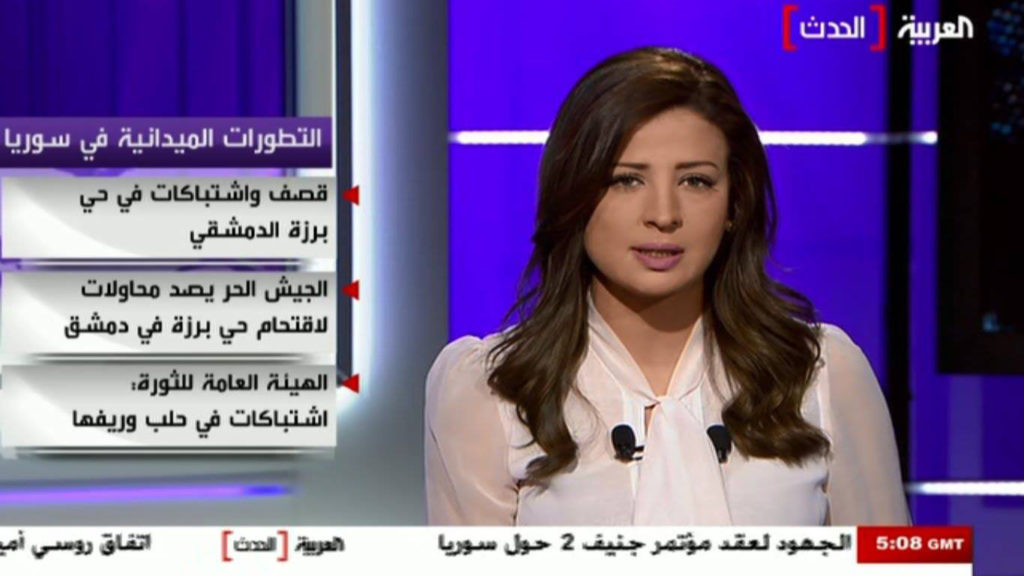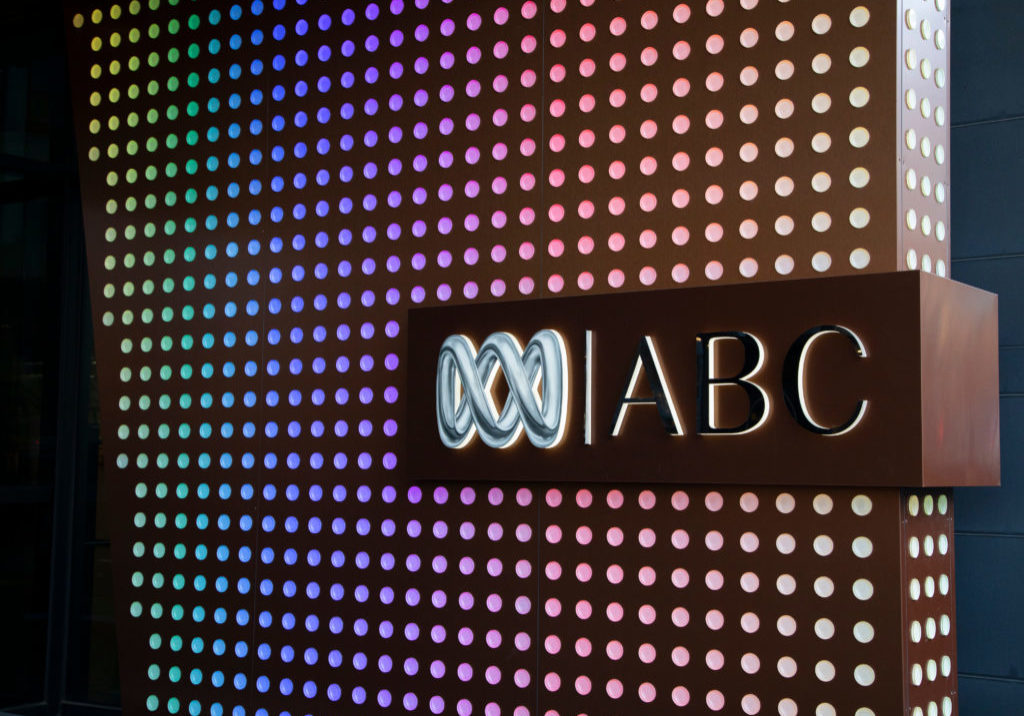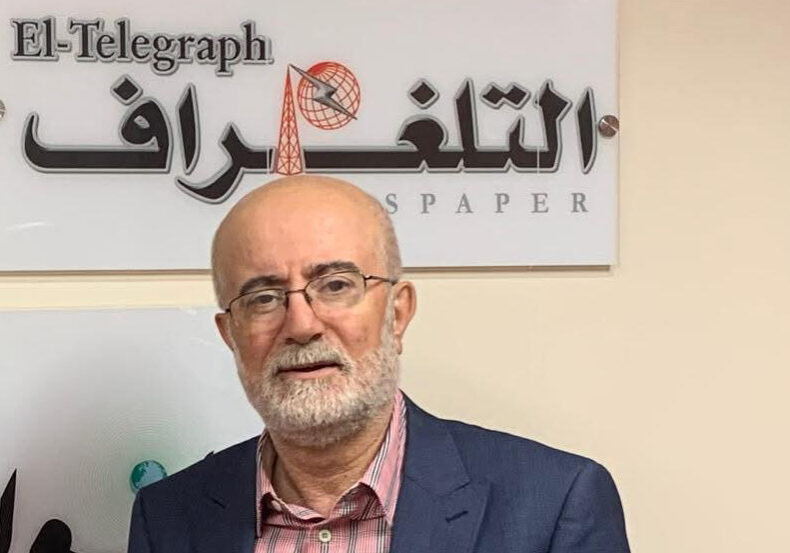Australia/Israel Review
The Mideast Media War
Jul 30, 2013 | Lee Smith

Lee Smith
In early July, al-Jazeera staffers were driven out of a news briefing held by the Egyptian military – apparently because of perceptions by those in the crowd that the Doha-based network is biased toward the Muslim Brotherhood government. This incident is only the latest salvo in what’s emerging as an ongoing media war in the Middle East.
The Middle East media war plays a role in the real-world conflict in the Middle East pitting the Sunni powers – from the Arab states in the Persian Gulf to Egypt, Jordan, and Turkey – against the Iranian-led resistance bloc of mostly Shi’ite states and organisations like Hezbollah, Syria, and, increasingly, Iraq, whose bloodiest battlefield right now is in Syria, but which is claiming lives and minds throughout the Middle East.
Pushing the resistance bloc’s narrative are a host of media organisations, including the Beirut-based daily newspapers al-Akhbar, publishing in Arabic as well as English, and As-Safir, as well as the newly founded satellite TV station al-Mayadeen, which is reportedly owned by Bashar al-Assad’s cousin Rami Makhlouf.
Promoting the Sunni narrative of the media war – and of the shooting war in Syria – are the two giants of Arab satellite TV: al-Jazeera, which is supported financially and politically by the Emir of Qatar, and al-Arabiya, which is owned by a consortium led by members of Saudi Arabia’s ruling family. There are also various other television stations, newspapers, and websites representing the interests of Persian Gulf Arab powers, including the two great pan-Arab daily newspapers Asharq al-Awsat and al-Hayat – which are both owned by members of the Saudi royal family and headquartered in London. Where satellite television has captured the largest audiences, these two papers publish leading Arab intellectuals in their op-ed pages while faithfully chronicling the opinions and policies of Riyadh decision-makers for other Arab elites throughout the region.
In Beirut, the other great centre of Arabic media, are a number of other media outfits aligned with Gulf Arab interests, like Future-TV, owned by the family of former Lebanese Prime Minister Rafiq Hariri. Since Lebanon borders Syria, where the Sunni-Shi’ite shooting war is presently most active, Beirut is effectively the front line of the media war.
Yet up until the beginning of the uprising against Syria, the Sunni-owned press was anything but unified. The purpose of the Arab media is to advance the interests of states, regardless of what those interests might be from moment to moment. Where the old Arab media was directly owned and controlled by states, today’s Arab newspapers and satellite TV stations are owned either by the ruling families of Arab states, or by powerful people whose political and financial interests are tied to states, who can afford the nicest studios and the largest production budgets for their ventures, and whose profits are measured in influence rather than dollars.
The difference between stations owned by states or by wealthy individuals who run states or are dependent on states may not sound important – but it is. Before the advent of broadcast media, Arab rulers were largely able to ensure that their subjects knew only what the local state-controlled media wanted them to believe.
It wasn’t until the 1950s that the information barrier walling off individual Arab states from the rest of the world was crashed – by an Arab ruler, Gamal abd el-Nasser of Egypt. Nasser was the most charismatic Arab leader of modern times, but his voice wouldn’t have carried from western North Africa to the Persian Gulf littoral if it weren’t for American technology and the financial assistance of the CIA.
Nasser’s Voice of the Arabs radio station was broadcast on a powerful frequency that allowed the Egyptian leader, who came to power in a military coup, to reach into homes, cars, and coffee shops across the region where he often stirred up local populations against their rulers – in Iraq, Jordan, and especially Saudi Arabia. Nasser used radio to advance Egyptian foreign policy, while damaging the prestige of his rivals whom he often painted as American stooges.
If some Arab states eventually learned how to block information dangerous to them and advantageous to their rivals, two new technologies changed the game once and for all: satellite television and the Internet. If Arab regimes were incapable of deterring the global flow of information, the new information technologies also made it possible for them to project influence and power far outside their borders. The media revolutions of the past 15 years in the Arab world turned every local Arab potentate into a potential pan-Arab leader.
Al-Jazeera is the most famous example of the shift from old media to new media in the Arab world. Built on the rubble of a failed BBC effort to create an Arab satellite station, al-Jazeera hired the BBC staffers and started up operations in 1996. While al-Jazeera’s Western-style production values and its free-wheeling journalistic style and (relative) openness to the Arab public have often earned it high praise from Western media experts, the aim of the Doha-based network was strictly old school: to advance the interests of its host and chief funder, the Emir of Qatar. Specifically, al-Jazeera was created to counter the influence of Saudi Arabia – and to drive the Saudi ruling family crazy.
With a population of less than 27 million, Saudi Arabia is nonetheless the most important advertising market in the Arabic-speaking Middle East – since its citizens can afford to buy consumer goods on a first-world scale (by comparison, Egypt has 80 million people, but very few Egyptians can afford to buy foreign cars, or even lower-ticket items like refrigerators and washing machines). The size and wealth of the Saudi consumer market made the Kingdom into the de facto capital of Arab media, even if many Saudi media properties have never shown a profit.
Al-Jazeera’s news networks have also never been in the black, but this matters little to an Arab ruler sitting on enormous natural gas reserves and hungry for regional influence. In building his media empire, the Qatari Emir Hamad bin Khalifa al Thani (who recently handing power on to his son) followed one of the old rules of the Arab press – if you want attention, find the biggest guy on the block and kick him in the knees. In response to al-Jazeera’s aggression against the old Arab order, the Dubai-based, and majority-Saudi owned, al-Arabiya satellite network went on air in 2003 with the purpose of pushing back in favour of the Saudis.
Frequently described as the moderate alternative to the Doha satellite TV powerhouse, al-Arabiya represents the interests of a country that is closely allied with the United States and has no interest in promoting the revolutionary energies that long seemed to galvanise the al-Jazeera staff. For instance, it is unlikely that al-Arabiya’s executives and journalists are any more kindly disposed to Israel than al-Jazeera’s. But the Saudis would never have dreamed of celebrating on live TV, like al-Jazeera did, the release of Samir Kuntar, a Lebanese prisoner held by Israel for 29 years for murdering three Israelis, including a four-year-old child whose head the hero of resistance bashed in. Al-Jazeera presented Kuntar with a cake.
As the Arab Spring unfolded, al-Jazeera and al-Arabiya were on opposing sides of many issues-the divisions between the two networks reflecting the opposing foreign policies of Qatar and Saudi Arabia. For instance, while Saudi Arabia was horrified that the Obama Administration turned its back on Egyptian President Hosni Mubarak, al-Jazeera’s coverage of the January 2011 uprising helped topple the longtime American ally. Al-Jazeera English’s reporting from Tahrir Square also shaped American reporting of the event to the extent that the White House may have felt compelled to come out publicly against Mubarak almost immediately – which it did not, for instance, against Syrian President Bashar al-Assad.
In turn, the fierce fighting on the ground in Syria was matched on the airwaves and in the newspapers owned by the leading opponents and supporters of the Syrian regime. The Saudis had long had an uneasy relationship with Assad – and they were outraged when the Syrian regime was believed to be complicit in the 2005 murder of Rafiq Hariri, a longtime resident of Saudi Arabia who King Abdullah considered a son.
While Qatar had never had any problems with Assad – the emir considered Assad a colleague, and Assad’s wife Asma and the emir’s favourite wife Moza went shopping together – that changed as the Syrian death toll mounted. As Assad killed thousands and then tens of thousands of Sunnis, the sentiment of the region’s Sunni Arab majority turned against him. Accordingly, the Qatari emir dumped Assad, and al-Jazeera faithfully reflected the change in the tiny emirate’s foreign policy, putting the two Sunni satellite giants on the same side of the Syrian conflict. One al-Jazeera correspondent resigned from the station claiming that the Doha network’s coverage was biased: The indignant reporter was Ali Hashem, who jumped to al-Mayadeen, the pro-Assad station.
Hashem of course was right in his criticism of al-Jazeera: The station is a platform to represent and advance Qatari interests. But the fact that Arab media shapes stories to benefit the states to which they are tied is hardly unusual – and hardly limited to the Arab world. Russia Today, the television station controlled by Vladimir Putin, serves exactly the same purpose as Qatari-owned al-Jazeera or Saudi-owned al-Arabiya. Like those stations, Russia Today boasts new studios and superior production values, which are much closer to those of CNN than Pravda. However, aside from 70-year-old Stalinists, it’s unlikely that RT is going to have much luck in shaping any meaningful debates in the West.
Domestically, it’s a different story. The new generation of state-controlled media aims to consolidate domestic opinion by enhancing the prestige of what used to be understood – by outsiders and citizens alike – as propaganda. Many Russians believe the news and analysis on RT is legitimate if a program also features American talking heads. Similarly, many Arabs believe that al-Jazeera must be like real news, because the production values are similar to those of CNN. In this way, the production values of Western news reporting become a new kind of sugar-coating to help old-fashioned propaganda go down easier with consumers. If a satellite station or a newspaper or a website has high-paid American analysts and reporters and a bureau in Israel, then there must be something to its reporting from the Syrian battlefield or about internal corruption in Russia.
The rise of a new generation of state-controlled media outlets with Western production values would be less alarming if it didn’t also coincide with the demise of many of the West’s own for-profit newspapers and television stations, which can no longer afford to maintain bureaus in the Middle East, for instance, or in Moscow. The absence of experienced correspondents who draw their paycheques from traditional news organisations means that the reporting we have from these places is being produced by outlets that are often owned by the people they are supposed to be reporting on – relationships that most members of the public and many reporters are ignorant about. When it comes to foreign news, that means that Western opinion-shapers and policymakers are often flying blind – or worse.
Lee Smith is a senior editor at the Weekly Standard and the author of The Strong Horse: Power, Politics, and the Clash of Arab Civilisations. This article is reprinted from Tablet magazine, at tabletmag.com, the online magazine of Jewish news, ideas, and culture. © Tablet magazine, reprinted by permission, all rights reserved.
Tags: Media/ Academia






